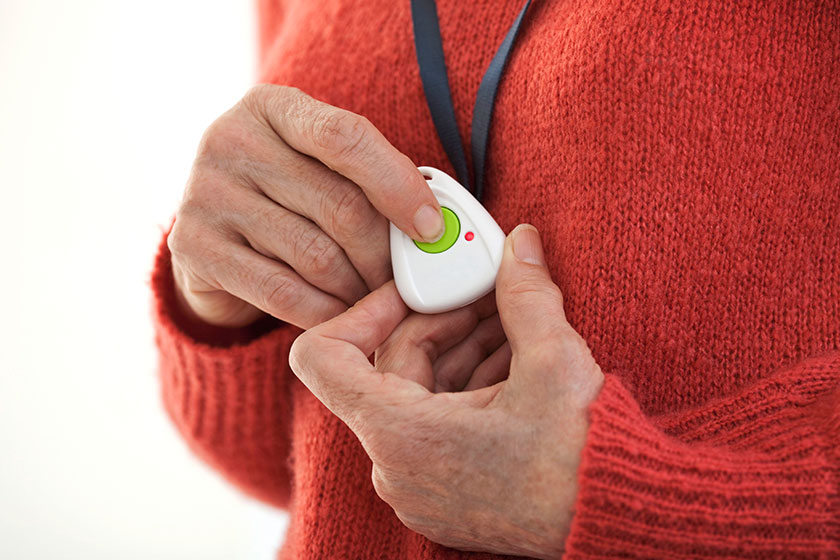When it comes to caring for loved ones with dementia, ensuring their safety and well-being is a top priority. Memory care units in Hillsborough, NC, are specialized facilities designed to provide a secure and supportive environment for individuals with memory-related conditions. One critical component of these units is the medical alert system, a tool that plays a vital role in safeguarding residents and providing peace of mind for families.
Understanding Medical Alert Systems
Medical alert systems are electronic devices that enable individuals with dementia to quickly and easily call for assistance in case of an emergency. These systems can be worn as pendants, bracelets, or even integrated into clothing, ensuring that help is always within reach. When activated, the alert system immediately notifies caregivers or medical personnel, allowing for a swift response to any situation that may arise.
The Role of Medical Alert Systems in Memory Care Units
In memory care units, medical alert systems are an essential component of the overall care plan. They provide several key benefits:
Enhanced Safety
The primary function of medical alert systems is to enhance the safety of residents. Individuals with dementia may experience confusion, disorientation, or even wander off, putting themselves at risk. With a medical alert system, they can quickly summon help, reducing the chances of accidents or injuries.
Increased Independence
Despite the challenges of dementia, many individuals still value their independence. Medical alert systems allow residents to move freely within the memory care unit, knowing that assistance is just a button press away. This autonomy can improve their quality of life and sense of self-worth.
Peace of Mind for Families
For families, knowing that their loved one is equipped with a medical alert system can provide immense peace of mind. It reassures them that their family member is in a safe environment and that help is readily available in case of an emergency.
Quick Response to Medical Emergencies
Dementia can be accompanied by other health issues, making prompt medical attention crucial. Medical alert systems ensure that any medical emergencies are addressed immediately, potentially saving lives and preventing complications.
Choosing the Right Medical Alert System
When selecting a medical alert system for a loved one in a memory care unit, consider the following factors:
Type of System
There are various types of medical alert systems available, including traditional landline-based systems, mobile systems with GPS tracking, and advanced systems with fall detection technology. Assess the specific needs of your loved one and the features of the memory care unit to choose the most suitable option.
Ease of Use
The system should be easy for your loved one to use, with simple activation methods and comfortable wearability. Test the device to ensure that it can be easily operated by someone with cognitive impairments.
Range and Coverage
Ensure that the system provides adequate coverage throughout the memory care unit, including outdoor areas where residents may spend time. A good system should have a wide range and reliable connectivity.
Monitoring and Response
Choose a system with a reputable monitoring service that provides 24/7 support and prompt response to alerts. Inquire about the response protocol and the qualifications of the monitoring personnel.
Cost and Contract Terms
Consider the cost of the system, including any upfront fees, monthly service charges, and additional costs for features like fall detection. Review the contract terms carefully, looking for flexibility and clarity on cancellation policies.
Implementing Medical Alert Systems in Memory Care Units
Once a medical alert system has been selected, it’s important to ensure proper implementation within the memory care unit:
Training and Education
Staff and residents should be trained on how to use the medical alert system effectively. This includes understanding how to activate the system, respond to alerts, and maintain the devices.
Regular Testing and Maintenance
Regular testing of the medical alert system is crucial to ensure its reliability. Schedule routine checks and maintenance to keep the system in optimal working condition.
Integration with Care Plans
The use of medical alert systems should be integrated into the individual care plans of residents. This ensures that the system is used appropriately and effectively as part of the overall care strategy.
Continuous Evaluation
The effectiveness of the medical alert system should be continuously evaluated. Monitor its usage, response times, and impact on resident safety to make any necessary adjustments.
Medical alert systems are an indispensable tool in memory care units in Hillsborough, NC, providing safety, independence, and peace of mind for residents and their families. By choosing the right system and ensuring its proper implementation, memory care facilities can significantly enhance the well-being of individuals with dementia. As we continue to advance in technology and understand dementia care, medical alert systems will remain a crucial component of providing compassionate and effective support to those in need.







